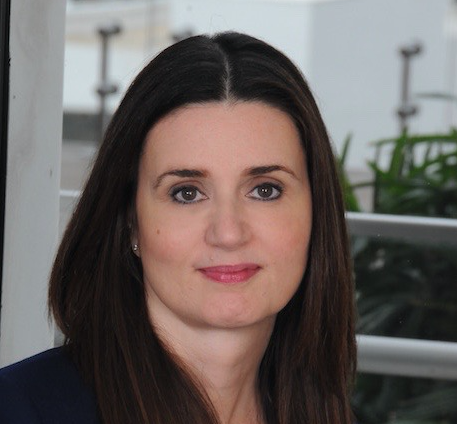Ava Borrasso
Ava Borrasso FCIArb is an independent arbitrator with 30 years of experience rooted in commercial litigation and international arbitration. She has been recognized for arbitration by Who’s Who Legal and Best Lawyers.
Why have you decided to specialise in ADR and what attracted you to this area of law?
Because I began practicing in litigation and later developed an arbitration practice first as counsel and then as arbitrator, I have a strong appreciation for the flexible nature of the process and increased ability to resolve disputes in an efficient manner.

What was the trajectory of your career that led you to your current position/post?
My practice began in commercial litigation and over time developed into an arbitration practice, mainly international, first as counsel and then as an arbitrator. The evolution as a neutral has been a natural progression informed by many years of practice as counsel in both litigation and arbitration. Practicing as a litigator and counsel in arbitration provides a great base of knowledge as to the interests and needs of the parties.
What are the challenges/obstacles women in ADR face in the early stages of their career?
The early stage of my career was exclusively in litigation, beginning in Chicago and then in Miami. I expect the challenges are similar for all developing lawyers, whether they practice ADR, litigation or handle a transactional practice. As a beginning practitioner, the key is learning the ropes from those around you and understanding the various procedures. I was particularly fortunate to have mentors at those early stages who excelled as advocates, never seemed to tire of imparting their knowledge and provided opportunities to handle each aspect of the case, from development to briefing to arguing the merits as we proceeded to hearing. The importance of stand-up time is critical for young lawyers, so looking for those opportunities at an early stage is key. Women need to be particularly cognizant of this and not consistently relegated to supporting roles.
What keeps you motivated in your career?
There is always more to learn, and each dispute is different. With a practice that has evolved from commercial litigation to international litigation to international and domestic arbitration to sitting as an arbitrator, the continued development and access to different playing fields and new roles has kept things fresh.
What do you consider to be your biggest achievement in the field thus far?
I started my own firm more than five years ago at which time I began sitting as an arbitrator. While my career has transitioned through different stages, each with its own highpoints, this latest phase has been particularly challenging and rewarding.
What is it like to work in a predominantly male profession?
Over time, this issue appears to be diminishing as more and more female practitioners remain in the field. In the United States, for example, the number of women in law school currently exceeds those of their male counterparts. Strides continue to be necessary in maintaining women in the profession and advancing and remaining at higher levels leadership. More women are emerging as established arbitrators along with an increased focus in overall diversity. There are a great number of young practitioners devoted to arbitration so there is a fantastic group of women in the pipeline. Excelling in any arena levels the playing field.
How has CIArb influenced your career progression and CIArb’s membership benefited your career?
Having the recognition as a Fellow with the Chartered Institute has been a great short-hand way of demonstrating knowledge in the field. The collegiality among the members – at all levels of membership – is truly exceptional. I have had the opportunity to serve on the Board of Directors for the North America Branch for the last few years. Recently, I was selected to the Executive Committee of the North America Branch where I serve as Vice Chair of Membership. In that capacity, I have the privilege to meet with many of the members and conduct the final interviews to attain fellowship. The depth and variety of expertise of our membership is truly exceptional and continues to expand.
What do you think the future for women in ADR will be like and what do you consider as the biggest challenge for a female professional in ADR in the future?
I expect women to continue to excel in ADR. I am continually impressed with the level of programming directed to young practitioners. The head-start and opportunities that these many programs provide play a critical role in developing talented professionals. Many of these opportunities exist at the law school level, including our own student membership roster. The ability to participate in various competitions exposes women to the realities of the field to better appreciate and determine their course. I expect to see these trends continue and access available to everyone.
Are there any interesting developments in the field of ADR in the jurisdiction you are based in?
For some time, U.S. courts have been grappling with the issue of whether they can grant discovery to support international commercial arbitration proceedings. Specifically, 28 USC § 1782 permits discovery for use in “a proceeding in a foreign or international tribunal” and the circuit courts have split on whether that term includes private foreign arbitrations. A recent decision from the Seventh Circuit Court of Appeal denied such discovery and is the subject of a petition for writ of certiorari to the United States Supreme Court. Interestingly, the arbitration was seated in London under the CIArb rules. Servotronics, Inc. v. Rolls-Royce PLC, et al, 975 F.3d 689 (7th Cir. 2020).
If you could practice ADR in any other country where will that be and why?
England due to the similar nature and structure of proceedings as well as legal framework. I expect London will continue to thrive as an international seat post-Brexit.
Tell us about your interests, hobbies or any out of work activities.
Travel (pre-Covid); novice yoga practitioner (post-Covid); cooking (always).